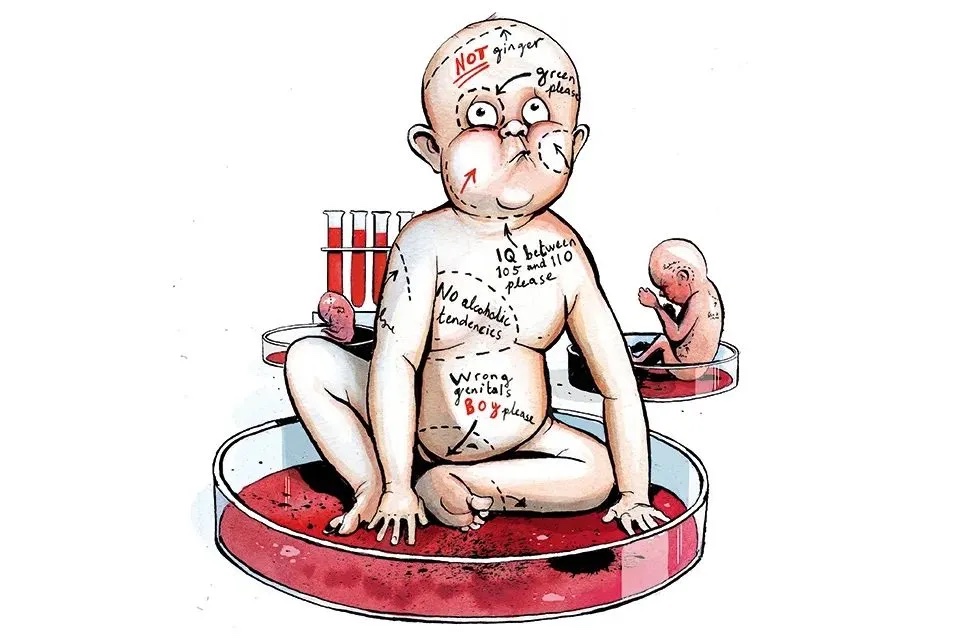Most social occasions now seem to kick off with a wasted hour or two. The time is spent discussing COVID: who’s had it and who hasn’t, who’s had the most nightmarish encounter with a mask fanatic and who the worst lockdown. After that there can be a second course, discussing things like international travel. Remember when we used to be able to book a ticket, put up with the indignities of the budget airlines but still arrive in any place we wanted? Now everybody has stories of friends and relatives they haven’t seen, places they can’t go, and experiences they’ve had to miss. The world has become a little smaller.
A perfectly dull evening can be spent rehearsing all this. It is all good boring stuff. War stories from a non-war. Perhaps in time a lifetime can be spent on such matters.
But my own sense is that some effort will have to be put into reversing the tendency. ‘Tell me something interesting though,’ is one way to generate the necessary conversational gear change. And occasionally — depending on the company you keep — you can get there. Often, of course, you don’t. But if you do manage it, then you can get on to the things that you’d like to imagine we all used to deal in: that gear where we swap enthusiasms and tell one another things we have learned and learn things we didn’t know. But whether or not such conversations really did happen much before COVID, they contained something that has begun to absorb me lately.
Largely because so much of life consists of a process of disenchantment. We learn this, or acquire it, from the earliest stages. One by one the enchantments fall away. You learn that you cannot fly, or do magic; that the dinosaurs will not come back. Then you learn that the world doesn’t revolve around you, with endless reiterations of the same: that the world doesn’t owe you a living, and may not give you one. The disenchantment of feeling like you ought to be rewarded for something while seeing the reward go elsewhere. There are so many other stages of disenchantment: with a city or even a country. And of course there is that moment — which should happen around the age of five or six — when you realize that politicians will let you down.
Perhaps the worst disenchantment of all is learning that people you love deeply can let you down. It’s one from which many never recover. When a family member or partner behaves in a way that is appalling it can curdle a person. We all know the type: the ones who don’t get on with their sister because of something the sister said 40 years ago. And boy do they let people know for decades after.
I had a small insight into another sort of disenchantment recently. After an accident too boring to go into, I found myself having to be pushed around in a wheelchair for a bit. And there I had a fortunately brief glimpse into something that we all face in the end: realizing that eventually our body will let us down. Suddenly I had a revived respect for all those people who have to permanently look at the world from that position and are not embittered by the fact.
I could go on. Life has enough disenchantments to fill many volumes. In fact I can think of various memoirs that contain little else. Life gives us plenty of material. And in the past 18 months it has given us a little more.
So the question arises of how to get above this process, or even reverse it. As far as I know, the only thing that can not just ameliorate disenchantment but actually reverse it is re-enchantment. And not merely hoping for it, but looking for it: searching for those things that will reverse the disenchantments of age and make us enamored with life again.
Considering how important this process is, it’s surprising how little we discuss it. Even when people are actively seeking re-enchantment, they rarely put it like that. For instance, a person might say that they enjoy hill-walking. We should not be fooled. A hill is a relatively unimportant thing to conquer. The walker hopes to find something else in the hills. And he is right to do so, for the natural world is one of the great ways to become enchanted again, or at least to spy that portal through which re-enchantment becomes possible.
Religion is another way, as are wine and other intoxicants. Which is not to say that they do the same thing in the same way. But the glass can give one person a glimpse of the thing that prayer affords to another. During a recent dinner with a friend we progressed pretty swiftly through the early chat courses of Covid and travel. I mentioned that I try to read in the afternoons and he asked what I was reading. It was The Magic Mountain, as it happens, and he asked me why I read like this. Liberated by wine more than prayer, I confessed that it is one of my most reliable ways to seek re-enchantment.
It is the same when I listen to music. I spent a portion of last year going through Bruckner’s symphonies and came eventually to the glorious Eighth. I had gone there in the hope of finding something which I did indeed find. The slow movement of that symphony has four chords that seemed to me to transform the world. It may not seem much against the many disenchantments of life. But four chords are something. And not just for their own sake. They reminded me — and remind me still — that re-enchantment is possible.
So I suppose we must keep searching, with plenty of false starts and fruitless byways. Because the only way to avoid the disenchantment and tedium of life is to know the approximate locations of the places where we might escape it, and then head there.
This article was originally published in The Spectator’s UK magazine. Subscribe to the World edition here.

























